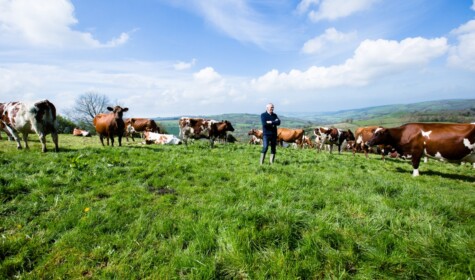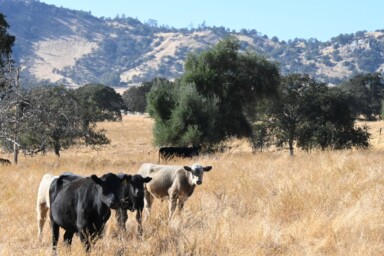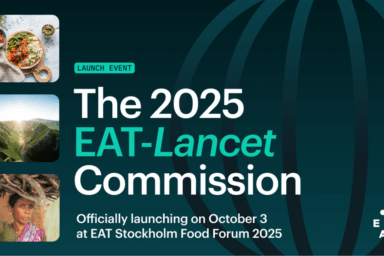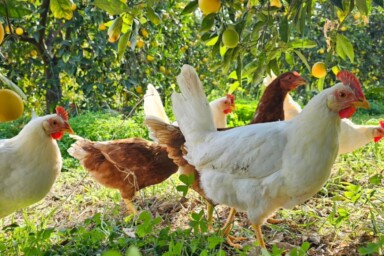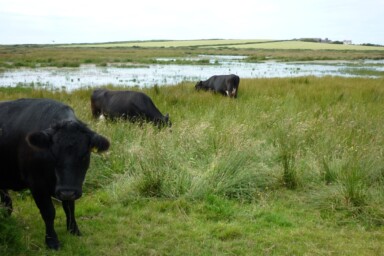Interviewing Isabella Tree for our recent podcast has given me much cause for reflection about the relationship between farmers and the land they manage. In a way, I was quite disturbed by hearing Isabella’s story of how she and her husband Charlie Burrell farmed intensively in Sussex for over 10 years, during which time they were unable to make a profit. This led them to decide in 2002, to quite literally close the gates of their fields and let the whole 3500 acres revert to nature.
My farming story is very different from theirs. As an urban child who grew up in London; my connection with nature sprang from holidays in the Hebrides and digging ponds, spending many hours peering into the water, witnessing the unique ecosystems comprising an incredible diversity of species, which quickly move in when a pond is created.
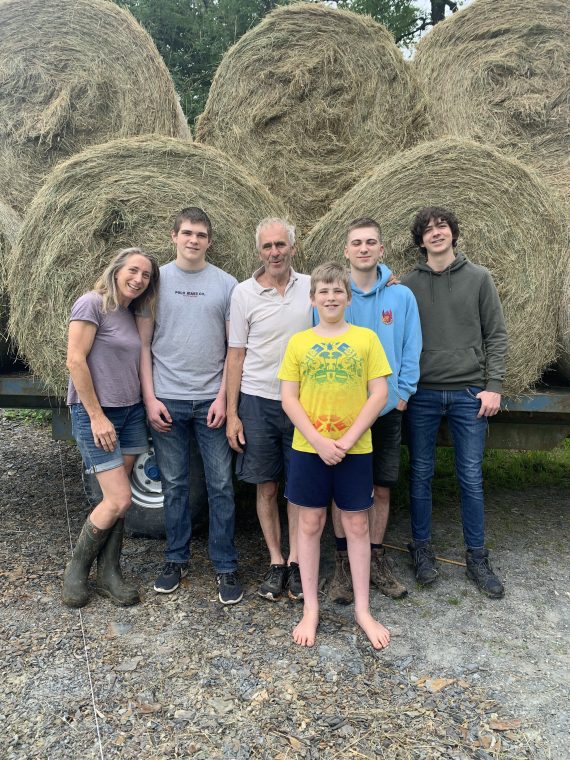
Inspired by the back-to-the-land ‘green’ thinking of the late 60s and early 70s, I decided to go into farming. My key aim was to produce food while working in harmony with nature. Now forty-seven years later, my experience on this farm in West Wales has left me certain that all farming is about ecosystems management. Truly sustainable food production is related to one’s capacity to intervene in a timely way, maintaining and hopefully building the natural capital of the farm, such as healthy soil and biodiversity, over which one has stewardship, whilst at the same time harvesting a surplus of nutritious food.
That is my conviction, but there is by no means a consensus about the best approach to address the challenge of providing enough food to nourish a global peak population whilst at the same time protecting the rapidly diminishing islands of biodiversity on planet Earth. In relation to this challenge, there are two sharply opposing schools of thought, sometimes described as ‘land sharing’ and ‘land sparing’. As explained above, I am firmly of the land sharing community. I take the view that if we are to reverse the relentless decline of biodiversity and natural ecosystems, which I was fortunate enough to witness in abundance as a child before major agricultural intensification took place, we need to change the way we farm. We must move away from chemically-intensive and exploitative approaches and towards food production systems which quite literally work in harmony with nature, avoiding chemical inputs, producing less but higher quality food – and doing so in ways that do not compromise the capacity of nature to co-exist with food production.
The other school, the land sparers, advocate further intensification on the best land but call this ‘sustainable intensification’ because they believe that new technologies in future will allow them to increase yields while using agrochemicals more sparingly. They argue this will enable us to retain the rainforests and other areas of pristine wilderness, while also re-wilding parts of the country where the soils and climates are more challenging or fragile (such as the Knepp Estate), by allowing them to revert to the ecosystems which would have prevailed before human-come-lately intervened in such a destructive manner.
Although I think it would be true to say that Charlie and Isabella would not be opposed to my philosophy of land use, they do advocate re-wilding up to 30% of the UK land area which, if this were to happen, would make it much harder for us to produce enough of our staple foods to feed a reasonable proportion of the 67 million people that inhabit the United Kingdom.
The debate is playing out on a world stage, with the land sparers currently ascendant in relation to their influence on policymakers. This is because they include some of the major conservation organisations, which have huge memberships, and many of the world’s most prestigious academic institutions; I’m talking here about Oxford, Cambridge, Stanford, Princeton… – some of these academics and their research teams are firmly in the land sparing camp. They advocate, judicious and responsible use of chemicals to further increase the output on the best agricultural soils of the world which they believe can be achieved without compromising the nutritional quality of food or unduly damaging the farm ecosystems. With mounting evidence that the nutritional density of food has already declined due to existing intensification, that at least is an issue which requires much greater consideration. Most of them also advocate shifting to plant-based diets with an associated dramatic reductions in livestock products, without adequately differentiating between those animals, mainly ruminants, that play a critical role in maintaining soil fertility, diversity and carbon stocks in grassland and mixed farming systems, and those intensively farmed livestock and their products which are absolutely part of the problem.
My conviction is that the term they use – ‘sustainable intensification’ – is an oxymoron, if one is using it to describe systems which continue to rely on chemical inputs. I am not against intensification per se, but I believe the only kind that really has any traction, at a time when we are beginning to discover the incredible, mysterious and complex ecosystems which comprise the world of soil, is biological intensification.
To witness an example of this, look no further than the farm of my friend and SFT Board member Peter Segger and his partner Anne Evans. They have been practising biologically based vegetable production for over 40 years on their remarkably productive organic vegetable farm, Blaencamel, just down the road from where I farm.
I am full of admiration for the remarkable achievements of Charlie Burrell and Isabella Tree at the Knepp Estate and I recognise the need for some rewilding because we have done so much damage to biodiversity. But we should think long and hard before we take too much land out of food production because this will have two serious negative consequences. It will force us to rely even more on imported food, which is often associated with significant environmental degradation in other countries and it will intensify still further the methods used on the remaining food producing land. Whether it is called ‘intensification’ or ‘sustainable intensification’ it will still depend on agrochemical inputs and create an environment that is hostile to biodiversity.
There is more work to be done to explain how and why a land sharing approach will ultimately produce the better outcome and it is my hope that other academics, some of whom I know share my views, will rise to the challenge of helping in this task. Because this debate is not yet resolved, I believe it is important that the SFT should continue to highlight the issues in our current and future communications. The debate is not merely about land sparing or land sharing, it is at the heart of the way food will be produced in future to feed the growing world population, whilst at the same time helping to address climate change and biodiversity loss.
